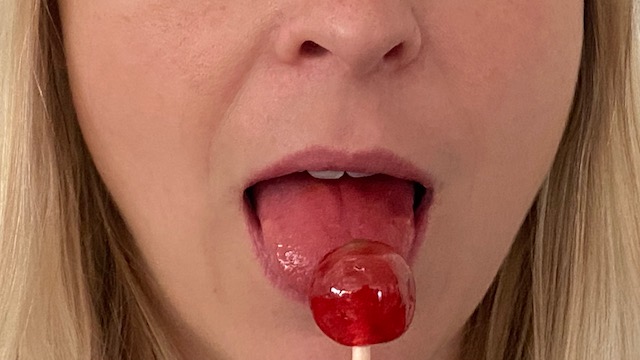How Many Lessons Until My Kid Is Awesome?
Posted by Ken Krause
Today’s blog post was suggested by my friend and fellow pitching coach Shaun Walker of Next Level Softball. Shaun is an incredible pitching coach and an innovative thinker who has opened me up to a whole new world around human movement and how it affects athletic performance at a core level.
Don’t let the West Virginia accent fool you either. He may talk funny (as he says) but you better pay attention when he’s doing it or you will miss something great. (If you’re in the Man, W. Va. area and are interested in quality instruction definitely look him up.)
In any case, Shaun told me about getting contacted by the parent of a prospective student who asked him the question I’m sure is on the minds of many parents: how many lessons will it take? The implied part, of course, is until my daughter is a star.
Wow, talk about a loaded question. As Shaun says, that’s like asking how many licks until you get to the center of a Tootsie Roll Pop. There is no easy answer.
NOTE: While we will be talking about pitching specifically in this post, the principles apply to all skills, all positions, and all sports and activities.
One obvious reason is that different players have different builds, athletic abilities, work ethics, time available to them, levels of experience, practice spaces, levels of mental toughness, and other factors. They are also different ages which factors into it more than many of us might want to admit.
For example, an 8 year old will generally have a very different ability to focus for long periods of time than a 14 year old. That’s just biology.
Sure, there are plenty of distracted 14 years old, and the occasional hyper-focused 8 year old. But for the overall population this is true.
With the result that the 8 year old will be able to pay attention for part of the lesson until the circus in her head takes over whereas the 14 year old should be able to focus for the entire lesson. Particularly if she is personally motivated to learn.
Athletic build is a pretty obvious factor. A big, strong player will likely experience more success early than a scrawny little peanut who is in danger of being blown away by the next strong breeze.
That doesn’t mean it will stay that way forever, though. The peanut will grow and mature, and eventually gain the muscle mass needed – particularly if she works at it – to catch up to her larger peers. With the added benefit her mechanics may be cleaner because they had to be.
But it’s going to take her longer to achieve the same level of success. Again, that darned biology.
This brings us to work ethic, which I’m sure Shaun (and many others) would agree is the greatest X factor of them all.
Take two girls of similar native ability. The only time the first one picks up a ball is when she has a lesson. Or maybe an hour before she has that lesson.
The second one practices diligently. Not just putting in time, but actually working on the things that were assigned to her in her last lesson (whether that was with a live pitching coach, a team coach, a parent, or an online session).
Which one is more likely to advance faster? I think the answer is pretty obvious.
But there is no way the coach being asked “How long will it take” will know these players well enough to make that evaluation before ever working with them.
And even then, the lack of natural athletic ability or comfort with body movement may hold the harder worker back longer — for a while. Eventually, though, that work ethic will overcome just about any obstacle.
Another factor that can contribute is how long it takes to overcome previous bad teaching.
I’ve talked a lot, especially recently, about the benefits of internal rotation (IR) over hello elbow (HE) pitching, especially when it comes to using the body the way it’s designed to work. One of the biggest issues HE generates is teaching pitchers to turn the ball back toward second base, make the arm as straight as possible, and push the ball down the back side of the circle.
When you do that you lose any ability to accelerate (whip) the ball through the release zone, affecting both speed and accuracy. That’s why many pitchers who are taught HE, and do the HE drills, still manage to find their way to some form of IR when they actually pitch.
Still, those ingrained habits can be difficult to break. So a pitcher who has taken lessons for five years from an HE coach may find it takes her longer to unlearn those mechanics and get on the right path than one who has never had instruction before or maybe even who has never pitched.
So again, how long it takes to achieve the results you’re looking for is difficult to predict. It all depends on how long it takes to learn to face the ball forward, maintain a bend in the arm, and accelerate the ball into release by leading the little finger rather than pushing it from behind.
Last but definitely not least is the mental toughness factor. Many of the skills in softball are incredibly difficult to learn, and pitching is certainly no exception.
It can be frustrating, even soul-sucking at times. There will be days when nothing seems to work right, or weeks when it feels like zero progress is being made because the speed on the radar gun isn’t changing or the strike percentages aren’t going up significantly or the spin direction on the ball isn’t what it should be.
Pitchers need to have the mental toughness to accept it and keep working anyway. If they’re learning the right techniques, and practicing diligently, it will happen. As my favorite quote from Remember the Titans says, “It’s like Novocain. Give it time, it always works.”
Those who can hang in there when the going gets tough will see the rewards. Those who can’t will find it difficult to achieve their dreams.
Just like in life.
So how long will it take? As long as it takes.
There are things you can do to shorten the process, but it’s only shortening your process, because we’re all different.
Keep an eye on the prize, understand it’s a marathon, not a sprint, and all those other sports clichés. If you keep at it you will eventually reach the chewy center.
Oh, and if you have a topic you’d like me to address, feel free to suggest it in the comments below. I’m always looking for new ideas that will resonate with your interests and concerns.
About Ken Krause
Ken Krause has been coaching girls fastpitch softball for nearly 20 years. Some may know him as a contributing columnist to Softball Magazine, where he writes Krause's Korner -- a regular column sponsored by Louisville Slugger. Ken is also the Administrator of the Discuss Fastpitch Forum, the most popular fastpitch discussion forum on the Internet. He is currently a Three Star Master Coach with the National Fastpitch Coaches Association (NFCA), and is certified by both the Amateur Softball Association (ASA) and American Sports Education Program (ASEP). Ken is a private instructor specializing in pitchers, hitters, and catchers. He teaches at North Shore Baseball Academy in Libertyville, IL and Pro-Player Consultants in McHenry, IL.Posted on April 22, 2022, in Coaching, Instruction, Pitching and tagged athleticism, dedication, how long, mental toughness, Next Level Softball, practice, Shaun Walker. Bookmark the permalink. Leave a comment.







Leave a comment
Comments 0